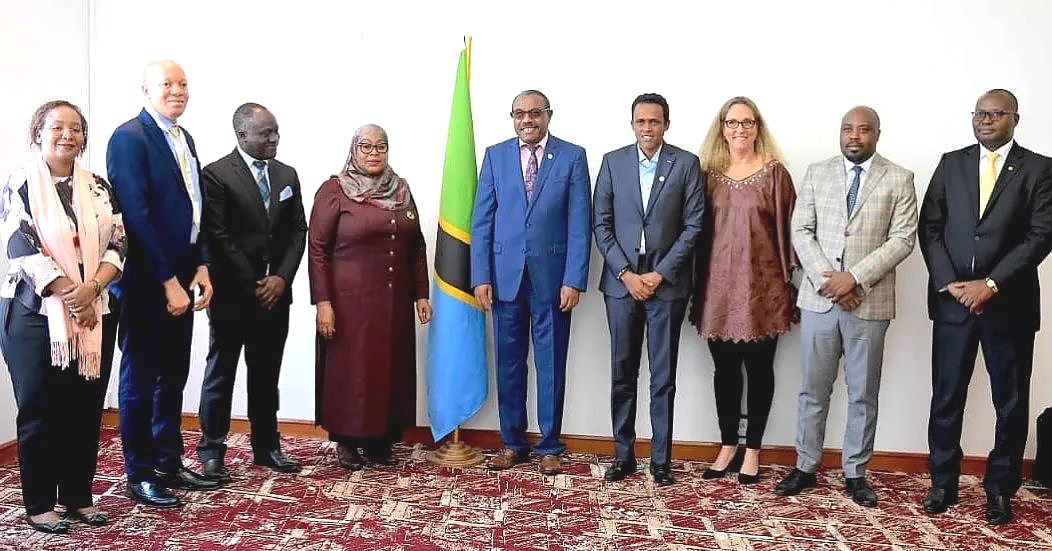Kilimokwanza.org Reporter
Tanzania’s Agriculture Sector and blue economy are at the spotlight at the 28th session of the United Nations Framework Convention on Climate Change (COP28), hosted in Dubai, UAE. This significant event, running from November 30 through December 12, 2023, brings together global leaders to tackle the urgent issues posed by climate change and to collaboratively pave the way for sustainable development.
Tanzania’s Bold Leadership on the Global Stage
The Tanzanian delegation, led by President Samia Suluhu Hassan, includes Minister of Agriculture Hussein Bashe. The team comprises permanent secretaries, ambassadors, experts from various sectoral ministries, public institutions, academic bodies, the private sector, civil society, youth representatives, and journalists from both mainland Tanzania and Zanzibar. This diverse group underscores Tanzania’s commitment to engaging in a multi-faceted dialogue on global climate action.
A Thematic Focus on Resilience and the Blue Economy
Tanzania has adopted “Strengthening Resilient Agriculture and Blue Economy in the Face of Climate Change” as its theme for COP28. This theme reflects the country’s dedication to leveraging technology and best practices that are mindful of the challenges posed by a changing climate. The goal is twofold: to enhance the efficiency and value chain in crop production and markets, and to bolster the nation’s capacity to withstand climate change impacts. This approach is aimed at fostering green growth and ensuring sustainable development.
Investing in Green Growth: A Strategic Move
A central aspect of Tanzania’s agenda at COP28 is to attract investment and business opportunities in green growth. The country is set to present its initiatives in sustainable agriculture and the blue economy, including pioneering clean cooking energy solutions. These endeavors represent Tanzania’s comprehensive strategy to incorporate environmental sustainability into its economic development plans, thereby ensuring a balance between economic growth and ecological preservation.
Revolutionizing Agriculture: A Youth and Women-Centric Approach
The transformation in Tanzanian agriculture, especially through the Jenga Kesho iliyo Bora (Build a Better Tomorrow – BBT) program, has generated significant excitement among the country’s youth and women. This enthusiasm is a driving force for further innovation and participation in sustainable agricultural practices, showcasing Tanzania’s commitment to inclusive and community-driven environmental stewardship.
President Hassan’s Pivotal Role at COP28
President Hassan’s participation and speech at the Summit of Heads of State and Government are highly anticipated. Her engagements will include bilateral meetings aimed at enhancing economic diplomacy and various side discussions focusing on agriculture and the green economy. These interactions are crucial for building international partnerships and collaborations, positioning Tanzania as a key player in the global environmental discourse.
Tanzania’s Vision for a Sustainable Future
Through its active participation in COP28, Tanzania not only positions itself as a leader in climate resilience and sustainable agriculture but also sets an example for integrating environmental sustainability with economic growth. The nation’s efforts showcase the potential for collaborative and innovative solutions in combating climate change and advancing global sustainability goals.
Looking Beyond COP28
The outcomes of Tanzania’s involvement in COP28 are expected to have far-reaching impacts. The nation’s focus on resilient agriculture and the blue economy is not only a testament to its commitment to confronting climate challenges but also serves as a beacon of hope for other developing countries striving to balance economic development with environmental sustainability.
As Tanzania presents its vision and strategies at COP28, it calls upon global leaders, organizations, and individuals to unite in the fight against climate change. The conference is more than a platform for discussion; it is a catalyst for real change, where ideas transform into actions, and actions lead to a sustainable and prosperous future for all.
